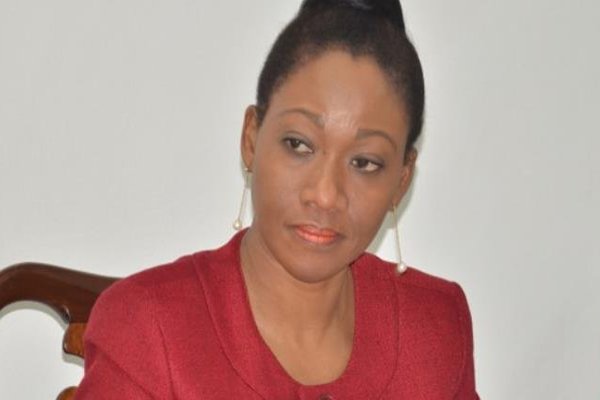By Selorm GBORBIDZI & Daniel WOOTTON, Accra
The Electoral Commissioner (EC), Mrs Jean Mensa, has decried the increasingly expensive nature of elections in Ghana.
She noted that due to the expensive nature of Ghana’s elections, the country usually falls on its development partners to support the conduct of elections, saying it did not ensure independence of the EC.
Speaking at the 17th International Electoral Affairs Symposium in Accra yesterday, Mrs Mensa said the commission, having realised this, was working to ensure that the cost of elections in Ghana was reduced.
Elections fast becoming very expensive venture
She said, “Our elections are fast becoming a very expensive venture and we constantly have to rely on development partners to fund this, thereby compromising our independence.”
$12 per voter in Ghana, compared to $5 in Tanzania
According to her, the cost of the 2016 election was over $12 per voter, compared to $9 in Nigeria and $5 per voter in Tanzania in 2015.
Dependence on donors compromises EC’s independence
She added that the tendency to depend on developing partners to partly fund the cost of elections in Ghana compromises the independence of the elections.
“How can election monitoring bodies streamline their processes to reduce cost?” Mrs Mensa asked.
She hoped that the symposium would afford the Commission the opportunity to get “feedback and information on efficient systems and equipment that provide value for money.”
Strengthening of electoral management bodies
She stressed the need to strengthen electoral management bodies (EMBs) to ensure that citizens respect the processes that lead to the election of state officials as being free, credible and transparent.
Protection of the right of citizens
She also stressed the importance of the free participation of political parties in the electoral process and the protection of the right of citizens to express the preference.
Value for money
She said at the heart of the new leadership of the commission is ensuring value for money in everything that is done, because it will not want to be associated with running expensive elections.
“I think value for money is at the heart of everything that we do; and it’s not pleasant; it’s not a good feeling to be labelled as a commission that has [been] running costly elections,” she said.
Expensive biometric devices
Mrs Mensa also revealed that on assumption of office five months ago, she realised biometric devices for the commission were procured at expensive prices, something she said they would be working to beat down moving forward.
“Since our assumption of office, we have been concerned about the high cost associated with the procurement of hardware; namely, our biometric registration and verification devices used in the electoral process.
Executive Director for Ghana for Democratic Development (CDD-Ghana), Professor Henry Kwasi Prempeh said matters concerning elections, including the quest for credible, transparent, free, fair and peaceful elections across Africa, continue to feature prominently in the centre’s portfolio of programmes.
He, therefore, pledged the CDD’s commitment towards advancing effective and efficient electoral systems around the world.
Dr Afari-Gyan cautions about protection of privacy
Former Electoral Commission Chairperson, Dr Kwadwo Afari-Gyan asked electoral officials to be mindful of two facts: the cost implication of procuring biometric verification machines and the issue of protection of privacy.
Building ssystems with integrity
He also admonished electoral bodies around the world to build systems that have integrity built into it, such that genuine mistakes and deliberate wrongdoing can be detected.
He also asked election officials to be non-partisan, impartial and transparent in their work.
He reminded the audience that “machines don’t manage or conduct elections; they are to help humans to do their elections.”
Ghana is hosting over 100 elections stakeholders from around the world at the 17th International Electoral Affairs Symposium and International Electoral Awards in Accra, from January 28 and 29, 2019.
First of its kind in the sub-region, the event is organised by the International Centre for Parliamentary Studies (ICPS), based in London, in collaboration with the Electoral Commission of Ghana and the Ghana Centre for Democratic Development (CDD-Ghana).
Dubbed ‘Building Innovative Strategies for Better Electoral Systems Globally’, the event is aimed at bringing together election practitioners, political parties, civil society actors, academics and other key actors in the electoral space to deliberate on pertinent elections-related issues.
These include the impact of digital technology on elections, how to attract and engage youth electorates, and how to build trust and confidence in election management bodies.
The two-day event will be climaxed with the International Electoral Awards, where various electoral institutions and individuals from around the world will be celebrated for their stellar contribution to enhancing electoral integrity and making elections meaningful.
The awards categories include Election Management Award, Citizen Engagement Award, Gender Equality Award, and First Time Voter Award. Nominees for the various awards categories come from around the world.
Source: The Finder

